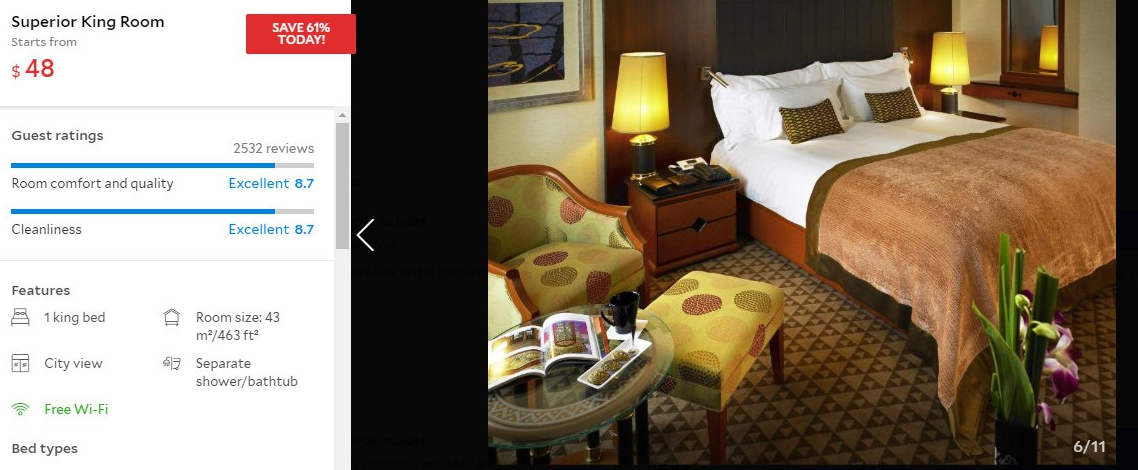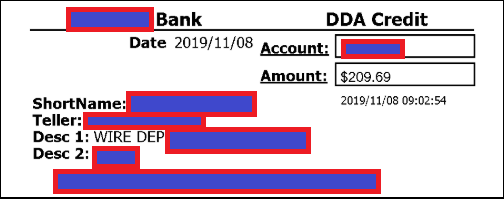Online business, wealth building, and success are all topics shrouded in mystery. And that’s why today’s article answers some of your most frequently asked questions about each of these subjects. You’ll learn whether or not digital nomads make money, why Internet business is constantly declared “dead,” how rich people get their money, and whether or not it is worth starting a website or side business in 2020.
Enjoy!
Is Internet Business Dead?
Every week we hear about some extreme online personality being deplatformed. YouTube demonetizes excessively gory video games or penalizes video makers for swearing and “The Internet is dead.” Fringe political accounts get suspended from Twitter and “Big tech is censoring everyone.” Google changes their algorithm and “Blogging is ruined.”
Is this true?
Yes and no.
What many content creators never consider is a little thing called “Market Cap.”
This is a concept which took me years to understand, and it goes like this:
Certain activities are probably too small or too niche to ever become more than a hobby. At some points in history this might temporarily change (and there are some exceptions), but not everything you like doing is easily monetizable.
I like playing cribbage. If I made a cribbage YouTube channel, it would never reach the requirements to start earning ad revenue. There’s not enough of an audience or anything to really sell.
Meanwhile, I could start a channel about shoe shopping (a topic I’m not interested in) and instantly have 100 different ways to make money off the content. There’s ad revenue, affiliate links, sponsored content, and maybe even a high-ticket upsell like recommending a cashback credit card for shoe shoppers.
While skills like copywriting are important, you also want to consider factors like market size or lifetime customer value. There’s a book called Ten-Day MBA which is really helpful with this, and I suggest picking up a copy.
Do Digital Nomads Make Money?

(Off-Season Hotels, Nice Ones Too, Sometimes Cost Less Than $50 Per Night)
The international baller, he’s enjoying threesomes in his Dubai penthouse; staying in $5,000 a night Bali mansions; driving exotic cars through the Hollywood Hills; and pitching you his guaranteed money-making formula (special price: $997). The sheer number of these digital nomads and international playboys has become something of a joke and there’s now a lot of backlash against them.
As somebody who lives abroad and works online, I thought I’d unmask how profitable most digital nomads are.
First off, most people who move abroad do actually enjoy a higher quality of life than whatever they’d expirience back home. Likewise, while they may not have a higher networth, many of these people have more disposable income than their Western counterparts. You can have a wild time in countries like Vietnam, Thailand, Peru, Mexico, and parts of the Caribbean for under $50,000 per year. It doesn’t take much to live in a big house, go out five nights a week, and take international vacations once a month in these locations.

($15 Lunch In Saigon Looks A Lot Different Than $15 Lunch In The USA)
A random middle manager in Des Moines Iowa might earn more than your typical “21 year-old millionaire” on Instagram, but they generally have a lower quality of life and less disposable income.
Between Uber, Airbnb, airline rewards programs, and smart phones; it’s never been easier (or cheaper) to travel the world in style and comfort.
Is Starting A Website Worth It Worth It?


($17.99 HostGator Investment Returning $209.69)
Internet business is… volatile. And that’s an understatement. I’ve had months where money poured in effortlessly, and I’ve had months where I couldn’t crack $1,000 in profit.
Imagine never knowing how much you’d earn and constantly having to reinvent yourself every 18 months or so. That’s a pretty crazy roller coaster and there’s good reason for most people to burn out. Likewise, Internet business is weird. You can achieve all sorts of noteworthy accomplishments that never earn a cent.
Imagine millions of people looking at pictures you took, laughing at jokes you told, and writing you fan mail. Yet you never make a livable income off any of that. Or picture yourself spending countless hours mastering a skill, building up an income, and then getting completely wiped out by random algorithm updates.
That said, there’s big upside too.
Most traditional employees have a salary cap. At this point they have to either work really hard to climb the corporate ladder, or look for high-yielding investment opportunities. Starting a side income makes it pretty easy to boost your income by 10% a year through one or two smart decisions.
If you make $50,000, you only need to bring in an extra $97 per week to hit those 10% returns. That might be one freelance project a month or affiliate marketing through social media.
And, in many cases, getting these returns cost virtually nothing.
I have a niche site that I wrote several dozen articles for. 90% failed to rank well or pull good traffic, but one converts rather nicely. Every couple months I pick up a check for $150 – $200. My total investment was a few hours of free time and $17 for a HostGator domain. Getting that same return from stocks or investing requires $10,000+ in capital.
While starting an Internet business might not make you rich, it does give you a leg up on your quest to build wealth.
How Most Rich People Got Wealthy
The easiest way to get ahead in life is through friends or networking. You can spend hundreds of hours “pulling yourself up by the bootstraps,” or you can enjoy a long lunch with the right people make 100 times more progress.
Almost every ultra successful person I know started with some type of network providing a major leg up.
An acquaintance owns two hotels. He got both of them for his 21st birthday, from his Dad.
Some other friends attended high-end European boarding schools and universities, they’re set for life thanks to strategic family connections and their parents’ long-term decision making skills. While blaming others for your shortcomings is lame, it is important to remember that certain events are set into motion long before you’re born (or at least before you’re fully old enough to understand what’s happening).
Where you’re born, who your parents are, and similar factors are out of your control.
This doesn’t mean you can’t overcome these obstacles, but it does mean you’ll have to work a lot harder and your eventual success will take longer. Keep this in mind whenever comparing yourself to others. Dan Bilzerian, for example, wouldn’t be Dan Bilzerian if it wasn’t for his father, Paul.
The Three Things Money Can’t Buy (Take Advantage Now)
Take a trip to the Midwest and go to any golf course or supper club in Wisconsin, Minnesota, Iowa, or Michigan. A lot of the people there are millionaires, but they certainly don’t look like. Most of these folks (while nice) are fat, old, and boring. There is nothing enviable and you’ll quickly realize that money isn’t everything.
A million bucks isn’t too impressive when you’re a fat 65 year-old man whose idea of a wild weekend consists of testing out the new riding lawnmower and watching college football in his “man cave.”
There are (at least) three things more valuable than money:
- Youth
- Physical Health
- Sense Of Adventure
Too much energy is wasted on things which are either outside your control or take time to accomplish. Beating yourself up because some Internet motivator (who you don’t personally know) declares that “You don’t deserve to have fun unless you have [X dollar amount] in the bank” is stupid.
A few smart decisions (pursuing additional income streams, saving some money, growing your friend network) will compound over time.
In the meantime, things like lifting weights or taking calculated risks are going to have a much bigger payoff. Working out or traveling abroad is far better return on investment than worrying about how to save an extra $1,000 per year or whatever. Additionally, being good looking or an interesting conversationalist is often a far greater wealth accelerator than frugally parking cash in the bank.
Working towards a better future is great, just don’t let it hinder your enjoyment of whatever’s going on now.
Final Thoughts

(Replica Venice Canal In Manila, Philippines)
A lot of negativity and burnout comes from trying to chase 1% levels of success. The bodybuilding community is full of drama over who is on steroids or which fitness experts are frauds. Art and jewelry collectors gatekeep over what is “respectable” or who has status in their communities. And even gamers attack each other over their hobby.
Because of this, it is very easy to beat yourself up or feel like a loser.
Here’s a question to ask yourself. If you have visible six-pack abs and are physically fit, does it matter if someone somewhere else has 2% less body fat and slightly wider clavicles?
Is the $1,000 painting you bought and admire somehow worth less because a different collector owns something worth $500,000?
The answer is obviously “No.”
While looking at others for motivation or ideas is fine, endlessly comparing yourself to people you’ve never met (or worrying about faceless gatekeepers) is a massive waste of time. Starting a business, or developing side income, is pretty beneficial even if you never make tons of money off it. You can use the extra cash for something fun, or to reinvest into other ventures.
And while Internet business might not be as easy as it was a few years ago, there are still plenty of opportunities out there.
Stepping up to the plate and swinging for the fences still beats the hell out of meekly giving up because “It’s just not possible.”